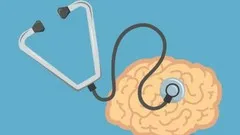
Simulating a Hippocampus Microcircuit 
Simulating a Hippocampus Microcircuit is a new approach to neuroscience, combining knowledge from various fields to create a unified empirical picture of the brain. This simulation aims to study the biological mechanisms of brain function, as well as the effects of diseases and treatments. It is hoped that this research will lead to a better understanding of the brain. ▼
ADVERTISEMENT
Course Feature
![]() Cost:
Cost:
Free
![]() Provider:
Provider:
Edx
![]() Certificate:
Certificate:
Paid Certification
![]() Language:
Language:
English
![]() Start Date:
Start Date:
Self paced
Course Overview
❗The content presented here is sourced directly from Edx platform. For comprehensive course details, including enrollment information, simply click on the 'Go to class' link on our website.
Updated in [March 06th, 2023]
This course provides an overview of the fundamentals of simulating a hippocampus microcircuit. Students will learn to use state-of-the-art modeling tools of the Human Brain Project Brain Simulation Platform to simulate neurons, build neural networks, and perform their own simulation experiments. The course will cover topics such as the anatomy and physiology of the hippocampus, the principles of neural network modeling, and the use of simulation tools to build and analyze microcircuit models. By the end of the course, students will have a better understanding of the hippocampus and its role in the brain, and will be able to use the simulation tools to build and analyze their own microcircuit models.
[Applications]
Upon completion of this course, participants are encouraged to apply their knowledge and skills to their own research projects. They can use the tools and techniques learned in this course to build and simulate their own hippocampal microcircuit models. Additionally, they can use the Human Brain Project Brain Simulation Platform to explore other brain regions and develop their own simulations.
[Career Paths]
1. Neuroscientist: Neuroscientists study the structure and function of the nervous system, including the brain, spinal cord, and peripheral nerves. They use a variety of techniques, such as electrophysiology, imaging, and molecular biology, to investigate the development, structure, and function of the nervous system. Neuroscientists are increasingly using computer simulations to better understand the brain and its functions.
2. Computational Neuroscientist: Computational Neuroscientists use mathematical and computational models to study the brain and its functions. They use computer simulations to explore the behavior of neurons and neural networks, and to develop new theories about how the brain works. They also use computer simulations to develop new treatments for neurological disorders.
3. Cognitive Neuroscientist: Cognitive Neuroscientists study the relationship between the brain and behavior. They use a variety of techniques, such as brain imaging, to investigate how the brain processes information and how this affects behavior. They are increasingly using computer simulations to better understand the brain and its functions.
4. Artificial Intelligence Engineer: Artificial Intelligence Engineers use computer simulations to develop intelligent systems that can learn and adapt to their environment. They use machine learning algorithms to develop systems that can recognize patterns, make decisions, and solve problems. They are increasingly using computer simulations to develop more sophisticated AI systems.
[Education Paths]
1. Neuroscience Degree: A Neuroscience degree is a great way to gain a comprehensive understanding of the brain and its functions. This degree typically covers topics such as neuroanatomy, neurophysiology, neurochemistry, and neuropsychology. It also covers topics such as cognitive neuroscience, computational neuroscience, and systems neuroscience. With the increasing use of technology in neuroscience, this degree is becoming increasingly popular and is expected to continue to grow in the future.
2. Cognitive Science Degree: Cognitive Science is an interdisciplinary field that studies the mind and its processes. This degree covers topics such as psychology, linguistics, philosophy, computer science, and neuroscience. It is a great way to gain an understanding of how the brain works and how it interacts with the environment. This degree is becoming increasingly popular and is expected to continue to grow in the future.
3. Computer Science Degree: Computer Science is a great way to gain an understanding of how computers work and how they can be used to simulate the brain. This degree covers topics such as algorithms, programming languages, artificial intelligence, and computer architecture. With the increasing use of technology in neuroscience, this degree is becoming increasingly popular and is expected to continue to grow in the future.
4. Artificial Intelligence Degree: Artificial Intelligence is a field of computer science that focuses on creating intelligent machines that can think and act like humans. This degree covers topics such as machine learning, natural language processing, and robotics. With the increasing use of technology in neuroscience, this degree is becoming increasingly popular and is expected to continue to grow in the future.
Course Provider

Provider Edx's Stats at AZClass
Discussion and Reviews
0.0 (Based on 0 reviews)
Explore Similar Online Courses

HTML Basics Course

Systematic Literature Review : A Practical Guide

Python for Informatics: Exploring Information

Social Network Analysis

Introduction to Systematic Review and Meta-Analysis

The Analytics Edge

DCO042 - Python For Informatics

Causal Diagrams: Draw Your Assumptions Before Your Conclusions

Whole genome sequencing of bacterial genomes - tools and applications

Control Your Subconscious Mind: Neuroscience Hidden Secrets

Perform an Excellent Neurological Bedside Exam

Brain and Behavioral Science Fundamentals
 Related Categories
Related Categories
 Popular Providers
Popular Providers
Quiz
 Submitted Sucessfully
Submitted Sucessfully
1. What is the aim of Simulation Neuroscience?
2. What will you gain from this course?
3. What tools will you use in this course?
4. The aim of Simulation Neuroscience is to _________.
Correct Answer: build a unified empirical picture of the brain


Start your review of Simulating a Hippocampus Microcircuit